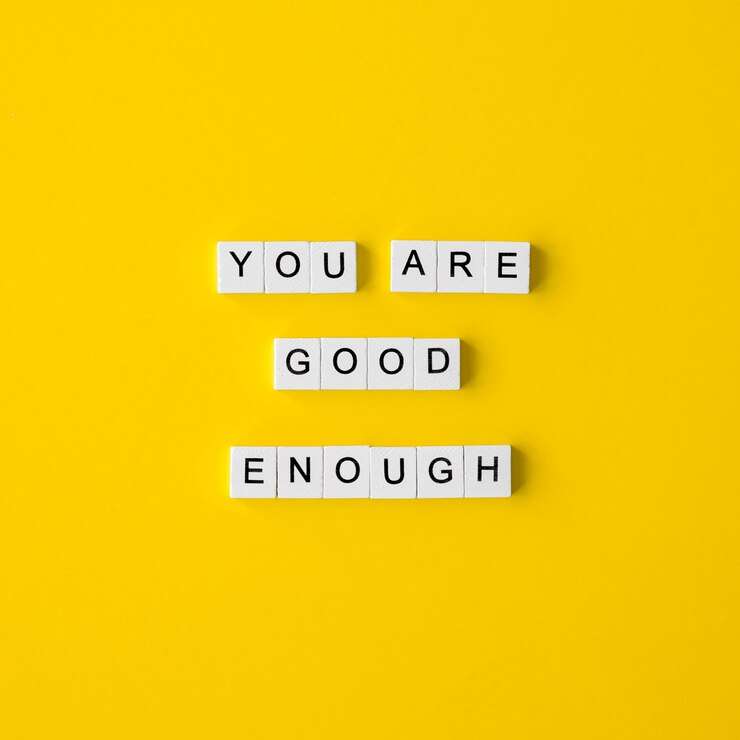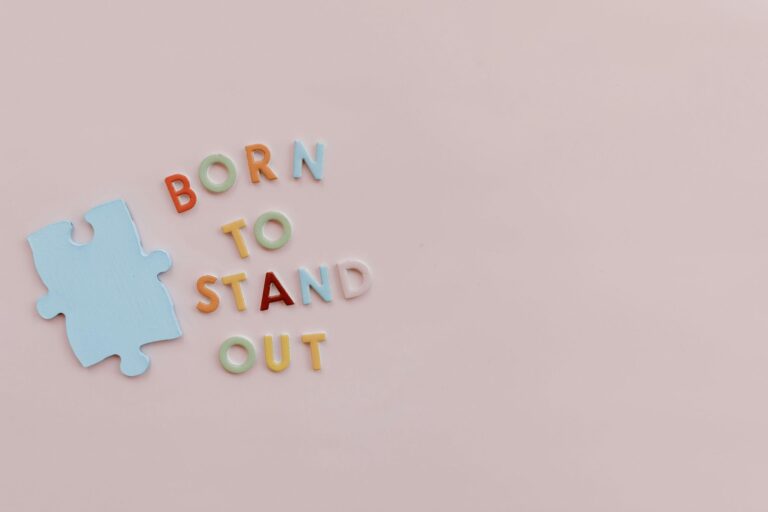How to turn past mistakes into your biggest advantages (free 5 day challenge)
You know that thing where someone asks if you want to lead a project and before you even think about it, your brain goes straight to the job you lost three years ago?
Or when you’re interested in someone and immediately remember the relationship that destroyed you, so you convince yourself you’re better off alone? Or when you have a business idea but can’t get past the one that failed, so you tell yourself you’re just not cut out for entrepreneurship?
You’re letting single moments – things that happened years ago – dictate every decision you make today. And the worst part? You don’t even realize you’re doing it.
I’m not here to tell you those experiences weren’t hard. They were. What happened, happened. It hurt. But you’ve taken those moments and turned them into evidence. Evidence that you’re not good enough. Evidence that you can’t trust yourself. Evidence that trying again will just lead to the same result.
And that story, the one you keep telling yourself about what those past mistakes mean, is the thing actually holding you back now.
Related reads
- How to let go of past mistakes and move forward
- How to forgive yourself: A gentle guide to self forgiveness
- Identity after trauma: Who are you without your pain story?
- The art of letting go: 8 techniques for releasing what no longer serves you
Why you’re still stuck on what happened
There’s something comfortable about being the person things happened to.
There can be a strange kind of safety in staying inside an old story. If the past is the reason, you never have to risk being disappointed again. That protects you, but it also keeps you stuck. You get to avoid the scary question: what if I’m capable of more than I’m letting myself believe?
The truth is that holding onto your setbacks as evidence of your limitations is a choice. And it’s costing you everything.
Every time you replay that failure and conclude “I’m not good enough,” you’re choosing that story. Every time you use the past mistakes to justify staying small, you’re choosing that story. Every time you let what happened years ago dictate what you try today, you’re choosing that story.
And stories? Stories can be rewritten. Not the facts. The facts stay. But the meaning you’ve assigned to them? That’s something you can change. This isn’t about trying to forget the past. It’s about stopping the past from making your decisions for you.
The work of releasing past mistakes and rewriting what they mean starts with recognizing they’re even there.
How to let go of past mistakes (the 5-day personal growth challenge)
This isn’t a feel-good journaling exercise. This is about breaking down the stories you’ve been telling yourself about why you’re not capable – and instead, pulling out the lessons and wisdom hidden in those moments you once saw as “proof” you weren’t enough.
Each day, you’re going to take one setback you’ve been carrying around and completely reframe it. You’re going to find what you gained, what you learned, what you became because of it. Not despite it.
Think of this as one of those self improvement challenges that actually changes how you see yourself. It’s a personal growth challenge built to help you rewrite the meaning of what happened, not just “stay positive.”
And you’re going to stop letting it be the reason you don’t try. As you work through each day, you’ll need tools to actively release the old stories while building new ones. These letting go affirmations will help you release the grip these past experiences have on your present reality.

Day 1: The career setback you won’t release
Pick your moment: The job you lost, the promotion you didn’t get, the business that failed, the professional embarrassment you still replay – or maybe the jobs you applied to and never heard back from, the interviews you thought went amazing… and then, silence.
What you’ve been telling yourself: Some version of “I’m not good enough / I don’t have what it takes / I’m not leadership material / I’m bad at this.”
What you’re going to do instead: Answer these questions honestly. Not what sounds good, but what’s actually true:
- What did that experience show you about what you actually want? Not what you thought you wanted. Not what you were supposed to want. What did struggling with or failing at that thing reveal about what genuinely matters to you?
- What skill did you develop in the aftermath that you wouldn’t have otherwise? Resilience? Better instincts? The ability to recover from rejection? The capacity to spot red flags? Name it specifically.
- What warning signs did you ignore going in, and how has that made you sharper now? There were probably signals you missed or rationalized away. What can you spot now that you couldn’t see then?
Write your reframe:
“That experience wasn’t evidence I’m not good enough. It was _____________ [the actual lesson]. Because of it, I now _____________ [specific capability or wisdom]. And I will never again _____________ [the pattern you’ve left behind].”
The truth: You didn’t fail because you’re not good enough. You failed because you were learning something you needed to know. And you’ve learned it. So stop using it as proof you can’t, and start using it as proof you can handle hard things.
Day 2: The relationship that changed everything
Pick your moment: The friendship that fell apart, the relationship that broke your heart, the person who betrayed your trust or that toxic dynamic that almost pulled you under.
What you’ve been telling yourself: “I can’t trust my judgment / I always choose wrong / People always leave / I’m not lovable / I let people walk all over me.”
The question you’ve been avoiding: What were you tolerating in that relationship that you knew, deep down, wasn’t okay?
Painful relationships don’t usually blindside us. We usually see the signs. We just choose to ignore them because we’re scared of being alone, scared of being wrong, scared of having to start over… or because we love them and don’t want to let go.
Answer these honestly:
- What red flags did you ignore because you wanted it to work? Write them all down. Every single one you rationalized away.
- What did that relationship teach you about your non-negotiables? What will you never tolerate again? What do you now know you absolutely need?
- What part of yourself did you abandon to make that relationship work? And are you still doing that in other areas of your life?
Write your reframe:
“That relationship wasn’t a mistake. It was a mirror. It showed me I was willing to _____________ [what you were tolerating]. I will never do that again. Because of that pain, I now know I need _____________ and I won’t settle for less.”
You’re not bad at relationships. You’re learning what you need and what you won’t accept. That’s called developing standards. The only way to learn them is to know what it feels like when they’re violated.
Day 3: The money decision you can’t forgive
Pick your moment: The investment that went south, the debt that piled up, the bad financial choice that knocked you off track, the business that emptied your savings or the person you trusted with your money who let you down.
What you’ve been telling yourself: “I’m bad with money / I can’t be trusted with resources / I always make the wrong call / I’ll never get ahead.”
What’s actually true: You made a decision with the information you had at the time. It didn’t work out. And you’ve been punishing yourself ever since instead of learning from it and moving forward.
Answer these:
- What were you actually buying when you made that decision? Not the surface thing. What were you hoping it would give you? Security? Freedom? Proof of success? Status? Get specific.
- What has that experience taught you about your relationship with money, security, and self-worth? How do you make financial decisions differently now?
- What resourcefulness or resilience did you develop when things fell apart? How did you survive? What did you figure out? What capabilities do you have now that you didn’t before?
Write your reframe:
“That financial mistake didn’t prove I’m irresponsible. It taught me _____________ [the actual lesson about money, trust, or yourself]. Because of it, I now _____________ [how you approach money differently]. I’ve paid for this lesson with real money. I’m not going to waste it by staying stuck in shame.”
Your bank account doesn’t determine your worth. And one bad financial decision doesn’t define your entire relationship with money. What defines it is what you do next. Are you going to stay paralyzed, or are you going to use what you learned?

Day 4: The dream that didn’t happen
Pick your moment: The goal you didn’t reach, the dream you had to let go of, the version of your life that never quite happened, the plan that completely fell apart.
What you’ve been telling yourself: “I failed / I didn’t have what it takes / It’s too late now / I missed my chance.”
What you’re refusing to consider: Sometimes dreams die because they were never actually your dream. They were what you thought you were supposed to want. They were the path you thought you had to take. They were the version of success someone else defined for you.
And when they fell apart, you got devastated instead of curious.
Answer these:
- If that dream had come true, what would your life actually look like right now? Be honest. Would you be happy? Or would you be trapped in something that looked good but felt wrong?
- What did that door closing force you to discover about yourself? What path did you take instead? What did you create or become that wouldn’t have happened if everything had gone according to plan?
- What were you actually chasing? Strip away the specific dream and get to the core. What feeling or experience were you after? And have you found another way to get it?
Write your reframe:
“That dream didn’t fail. It evolved. When it fell apart, I discovered _____________ [what you actually wanted or who you actually are]. That closed door led me to _____________ [what you created or found instead]. I’m not who I thought I’d be. I’m someone different—and maybe better.”
The truth: Stop mourning the life you didn’t live and start seeing the one you’re actually building. The dream that died made space for something real.
Day 5: The time you let yourself down
Pick your moment: The promise you broke to yourself. The time you acted against your values. The moment you let yourself down in a way that still makes you ashamed.
What you’ve been telling yourself: “I can’t trust myself / I always give up / I’m weak / I’m a hypocrite / I don’t follow through.”
What’s actually happening: You’re holding one moment – one decision, one failure, one lapse – and using it to define your entire character. You’re taking a data point and making it your identity.
And before we know it, we end up proving ourselves right. If you believe you always quit, you’ll quit. If you believe you can’t trust yourself, you’ll prove it. If you believe you’re weak, you’ll act weak.
Answer these, and be honest:
- What was happening in your life when you made that choice? What pressure were you under? What weren’t you dealing with? What were you trying to avoid or escape?
- What does the fact that this still bothers you tell you about your values? If you didn’t care about being strong, disciplined, or trustworthy, this wouldn’t hurt. Your shame is proof that you have standards.
- What commitment did you make to yourself because of that moment? What changed after that? What do you do differently now?
Write your reframe:
“That moment doesn’t define me. It refined me. It showed me I value _____________ [what matters to you]. Because of it, I committed to _____________ [what you changed]. I’m not the person who made that choice anymore. I’m the person who learned from it.”
The only people who never let themselves down are the ones who never try anything hard. You messed up. You’re human. Now stop using it as evidence you can’t trust yourself and start using it as proof you care enough to do better.
After years of beating yourself up for letting yourself down, rebuilding a loving relationship with yourself takes daily practice. These self-love affirmations will help you speak to yourself with the compassion you deserve – especially when you’re tempted to use the past as proof you’re not worthy.

What changes when you do this work
By the end of these five days, you’ll have broken down five stories that have been quietly running the show in your life.
You’ll have pulled out every bit of wisdom, strength, and clarity hidden inside the moments you once saw as setbacks.
You will have stopped being the person things happened to and started being the person who extracts value from everything, even the painful experiences.
And here’s what changes: You stop being afraid of failure. Because you’ve proven to yourself that even your worst moments made you stronger, smarter, sharper.
You stop playing small to avoid messing up again. Because you’ve seen that setbacks are how you learn what you’re actually made of.
You stop dragging your past around like proof of your limitations. Because you’ve rewritten it as proof of your capacity to survive, adapt, and grow.
Your past already happened. Now what?
Your setbacks are not evidence that you’re broken, behind, or not enough. They’re material. They’re curriculum. They’re the experiences that built the wisdom, resilience, and strength you have right now.
But you have to be willing to look at them differently. You have to be willing to stop protecting the victim story and start claiming the power.
Five days. Five rewrites. Five stories that no longer get to define you.
You can’t change what happened, but you can let go of past mistakes so they stop controlling what you try next.
Ready to go deeper?
This 5-day challenge is a powerful start, but real transformation happens when you commit to the daily work of releasing what’s been holding you back.
The Letting go workbook gives you 30 days of structured practices to process and release the guilt, shame, regret, and resentment you’ve been carrying. Each day includes:
- Journal prompts that help you get honest about what you’re holding onto and why.
- Challenges that give you concrete actions to practice releasing instead of just thinking about it.
- Upgrades that anchor the work so it actually sticks.
This isn’t about forgetting your past or pretending things didn’t happen. It’s about changing your relationship with what happened so it stops controlling your present.
You’ve already survived these experiences. Now it’s time to stop letting them dictate your future.







